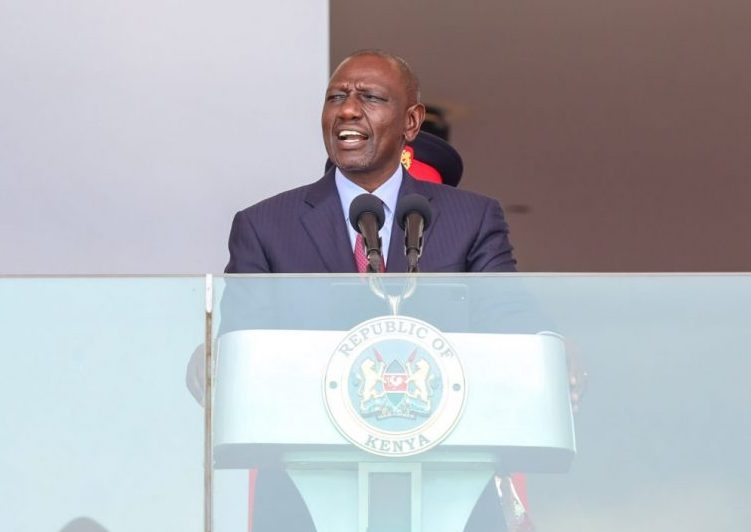‘We’ve invested heavily in education’ – Ruto
By Irene.Githinji, December 13, 2023President William Ruto said yesterday that the country’s expenditure on training, learning and education is the most appropriate investment in development of human capital necessary for economic progress.
To this end, the government increased the total allocation to the education sector by an additional Sh127 billion, he said yesterday.
Out of this, the President stated that Sh46 billion will support the new university funding model, an additional Sh9 billion to cover TVETs and the hiring of 2,000 tutors.
He said Sh47 billion will enable the Teachers Service Commission (TSC) to hire 56,000 teachers and other interventions while Sh24 billion for basic education to cover the junior secondary and construction of more classrooms.
“Our human capital, our innovative, smart-working, professional labour force is probably the single most potent arsenal we have to drive our economic progress. Globally, Kenyans have excelled in semi-skilled, skilled and professional occupations. Our expenditure on training, learning and education in general is a most appropriate investment in the development of the human capital necessary in our economic progress,” said the President during the 60th Jamhuri Day Celebrations at Uhuru Gardens.
To reduce classroom deficit in Nairobi County, he said the government had undertaken to build 3,500 additional classrooms with the first Sh1 billion allocated in this year’s budget.
Feeding programme
On Monday, the President also announced a boost for the education sector after increasing bursaries under Constituencies Development Fund (CDF).
This follows the signing into law of The National Government Constituencies Development Fund (Amendment) Bill.
The law increases the allocation from 35 per cent to 40 per cent to facilitate continuity and completion of education by students.
The additional funds will also cater for school feeding programmes, especially in drought-stricken areas.
It also increases CDF allocation on environmental activities from two per cent to five per cent to fund for climate crisis and another three per cent allocation of the Fund for constituencies’ digital hubs.
ICT hubs
The hubs are key in enabling the youth to acquire skills to boost their employability.
The President also said he signed into law amendments to the NG-CDF Act, which set out a framework to anchor the development of ICT hubs in each of the 1,450 wards in the country.
He lauded Members of Parliament for the partnership to leverage the digital superhighway infrastructure to provide training opportunities and create thousands of digital job opportunities for young people.
Ruto said the government is also rolling out training and digital job opportunities in all TVETs countrywide and 23,000 computers had been distributed. He said many students are now monetising their skills online.
“We are in discussion with county governments to jointly expand vocational training centres to accommodate ICT hub infrastructure so as to enhance the digital jobs’ footprints. The digital jobs ecosystem we are building is an intentional, dynamic and innovative mechanism to create jobs in the technology and digital space,” said Ruto.
